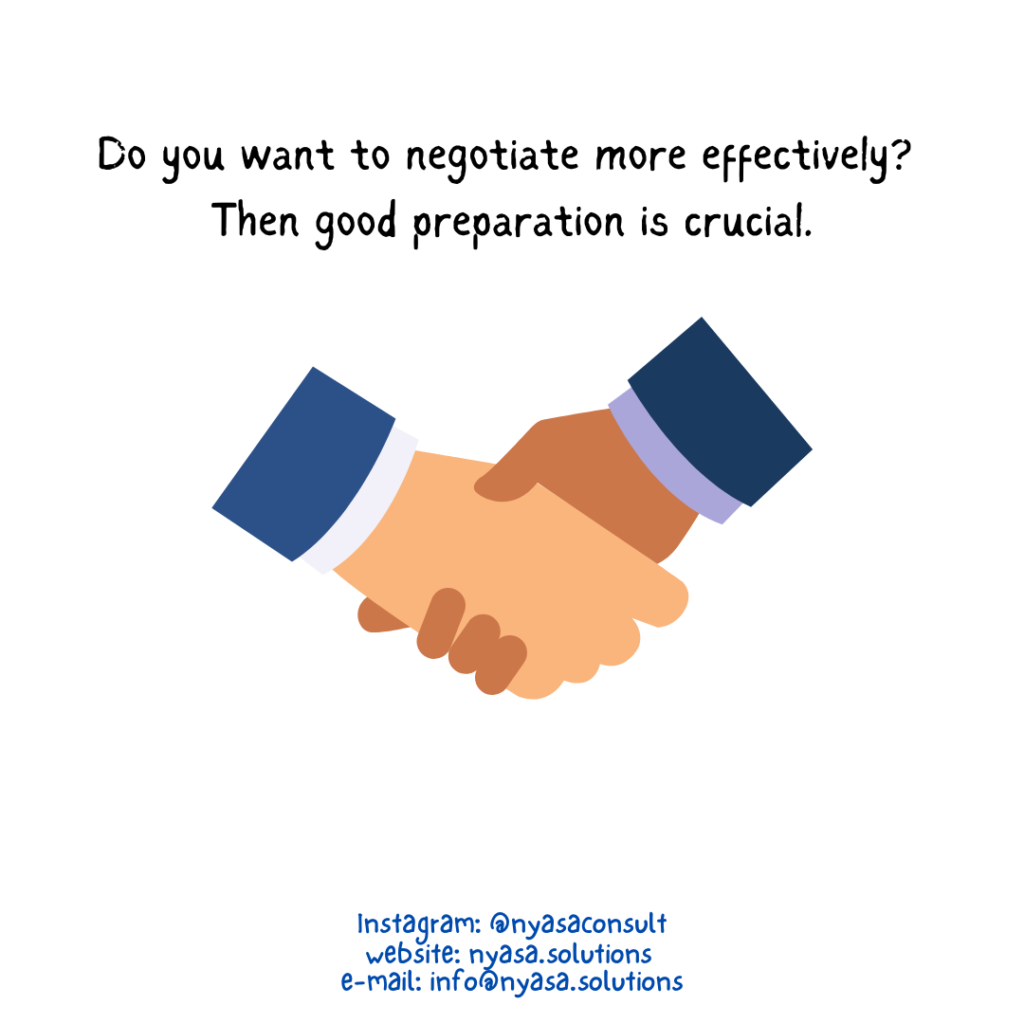Do you want to negotiate more effectively? Then good preparation is crucial.
1. Determine the desired result
What is your purpose of the negotiation? What do you need? It is good to determine for yourself what you want to achieve as much as possible. That’s what you aim for during the negotiation because you can be sure that you still have to make concessions. That is why you also think about what you want to achieve as a minimum. When is the lower limit reached and do you stop the negotiation? During the negotiation, continuously keep the target point in mind. If you stick to this, you’ll be much more persuasive.
2. Learn about the other party and common interests
It is very important to gather information about the goals and capabilities of the other party. Try to think about what the other party wants from you and why. Embrace the expectations and analyze what the interests of the other party are and how heavy these weigh. Is there pressure on the opposing party? Spend extra time finding shared interests. When interests overlap, the chance of success is greatest.
This analysis helps you to think about the possibilities. How can the other party help you achieve your goal? And what else do you have to offer? Can you solve an opponent’s problem? The more realistic and logical options you have ready, the stronger you are during the negotiation. You can always come up with alternatives.
If you know well what you want, what the other person’s goal is, and what you can offer each other, you will enter the negotiation with much more confidence!
3. Determine your negotiation style and strategy
The outcome of your negotiation is largely determined by your personality, behavior, and negotiation style. Your thinking influences your behavior during the negotiation. If you think you will not be successful in advance, you can assume that that prediction will come true. It is therefore good to get to know your own natural style. Once you understand that, you can learn the appropriate negotiation skills and strategies to achieve your goals. Make the most of your strengths!
But how are you going to achieve your goals? And that too without losing sight of the goals of the other party? The Harvard negotiation method can help you ensure you get what you want without disrupting the relationship with the other person. With this method, you separate people from the problem, focus on interests, and create options for mutual benefit. You insist on the use of objective criteria.
Important during the negotiation
Make sure you pay personal attention to your negotiation partner(s), listen carefully, and observe. Always stay friendly and calm and focus on the end goal. It is not always possible to find the right solution for both parties. Sometimes things are just out of your control. But everyone wants to be heard! So, give each other the time and space to share needs, acknowledge each other’s questions and points of view, and show that you give the other something. That strengthens the relationship. There is more trust and understanding, which in the long-term yields more profit.
Remember: it is only a win-win situation if both parties walk out satisfied. You will not achieve results if you only look to negotiate for your own interests.

